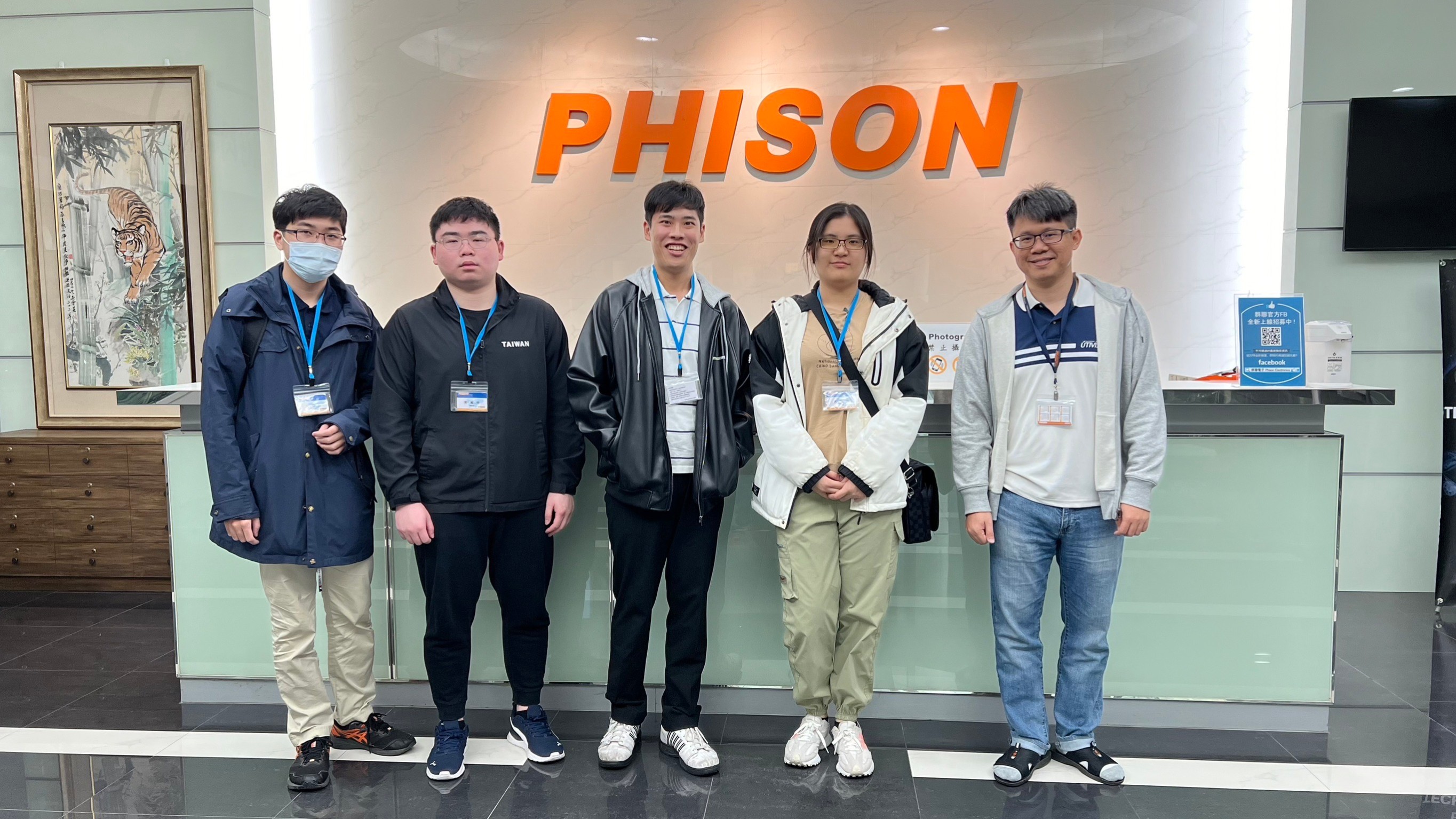NYCU x Phison Internship Program

Phison Electronics, established in 2000 and headquartered in Zhunan, is the global leading supplier in flash memory controllers and storage solution in Taiwan, which was co-founded by Mr. Khein-Seng Pua, an alumnus of the Institute of Electrical and Control Engineering at National Chiao Tung University.
In recent years, non-volatile memory storage solutions have become more prevalent, gradually replacing traditional mechanical hard drives with solid-state drives (SSDs). This shift has brought high-capacity and reliable storage options to various consumer electronic products like USB flash drives, digital cameras, and smartphones. Additionally, Phison has teamed up with the global storage leader Seagate to launch the world's fastest PCIe Gen4 SSD controller chip, the first SD Express card, and the first SD Express solution to pass SDA SVP certification. With the rise of artificial intelligence, the high capacity and reliability of flash memory have become essential in overcoming the memory wall. This technology enables high-speed access to the extensive weight parameters needed for training large language models, thus reducing the computational costs of training large models and giving enterprises complete control over the process.
In addition to the architectural design of microcontrollers, efficient algorithms are more critical for optimal management of the hardware components of the flash memory controller. This requires expertise in data structures, algorithms, computer organization, operating systems, and related fields, all of which need to be integrated thoroughly to address various memory constraints. Within the Phison R&D department, a significant proportion of engineers are dedicated to algorithm development.
Since 2022, Phison has partnered with the College of Computer Science at National Yang Ming Chiao Tung University to introduce students to Phison's operations. This extended internship program, unlike short-term summer internships, typically spans one semester or an academic year and takes place on-site at the College of Computer Science. Participants receive significant stipends during their internships. The program includes learning foundational knowledge, algorithm design and simulation, and practice of hardware development and testing. Supervision is jointly provided by Professor Li-Ping Chang of the College of Computer Science and Phison executives. Regular video conferences enable participants to delve into firmware algorithm development and the characteristics of flash memory. Since its inception, the program has involved 11 students. Through this internship program, students can enhance the appeal of their resumes and maintain real-time contact with industry trends. Below are the experiences shared by the participating students:
The experience of Lijia Yang 2023/9-1 ~ 2024/5: During my time with the Phison internship, I experienced steady growth, built on a strong foundation over the course of a year. We began by studying exemplary papers to accumulate background knowledge. Next, we took the initiative to create a basic Flash Translation Layer (FTL) simulator on our own. Finally, we explored a complete SSD development environment and developed our own improvement proposals. This progression from fundamental to advanced tasks was both gradual and methodical. Throughout this journey, I received considerable support and guidance from both professors and Phison supervisors. It was even more valuable to have the opportunity to visit Phison's Zhunan office, where we gained firsthand experience of a large enterprise's operations and learned about inter-departmental collaboration. This internship not only enriched my knowledge and practical experience in hardware but also broadened my industry perspective. The two-day workweek schedule was manageable and did not impose excessive pressure on my studies, providing a rewarding and engaging internship experience.
The experience of YiCheng We 2022/03 ~ 2023/01: Participating in Phison's internship program helped me gain valuable insights into the practical application of the algorithms I had studied. The hands-on experience demonstrated that developing algorithms differs significantly from classroom exercises; it involves managing limited hardware resources and balancing space and time to create feasible solutions. This internship not only taught me how to handle large-scale projects but also improved my documentation skills. Most importantly, it deepened my understanding of firmware algorithms in SSDs, greatly enhancing both my professional expertise and practical abilities.
For those interested in joining the Phison internship program, please contact Computer Science department Ms. Chih Yu Huang haungcy0512@nycu.edu.tw
Professor Li-Pin Chang lpchang@cs.nctu.edu.tw is responsible for overseeing the execution of the Phison program.